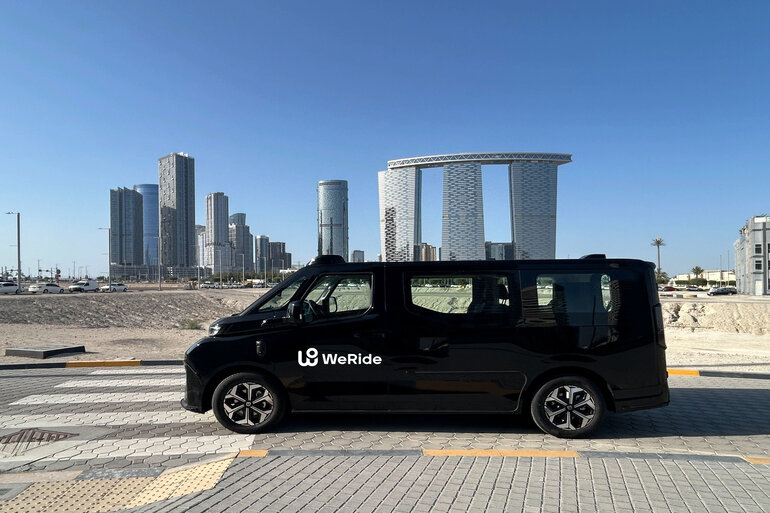WeRide, a global pioneer in autonomous driving technology, has launched fully driverless Robotaxi trial operations in Abu Dhabi, the first initiative of its kind in the Middle East. Beginning this quarter, a fleet of WeRide’s Robotaxis will operate on public roads without onboard safety drivers, marking a significant milestone in the region’s journey toward smart mobility. As part of this new phase, WeRide is expanding its service to two high-demand lands: Al Maryah Island, Abu Dhabi’s financial hub and home to the Abu Dhabi Global Market, and Al Reem Island, a thriving residential and lifestyle destination. These additions build on the company’s established Robotaxi network, which has been safely serving Yas Island, Saadiyat Island, and routes to Zayed International Airport since 2021.
“WeRide makes history as the first company to pilot fully driverless Robotaxis in the Middle East region, showcasing our autonomous leadership in one of the world’s most dynamic urban environments,” said Jennifer Li, CFO and Head of International at WeRide. “In parallel, we’re expanding commercial service to high-demand areas like Al Maryah and Al Reem Islands – bringing smart mobility solutions to more users in the Middle East. Together, these demonstrate our technological maturity while moving us closer to mass commercialization of Robotaxis.”
WeRide is accelerating its global business expansion, with the UAE as a key market for autonomous driving growth and innovation. In July 2023, the company received the UAE’s first and only national license for self-driving vehicles, authorizing testing and operation of its autonomous vehicles on public roads nationwide. In December 2024, WeRide and Uber launched their ride-hailing partnership in Abu Dhabi, marking the largest commercial Robotaxi service outside the US and China. As a member of the Infrastructure, Regulations, and Pilot Acceleration Working Group under the Abu Dhabi Smart & Autonomous Systems Council, WeRide also advises on the development of local infrastructure and legislation to advance autonomous mobility.
Commercial driverless rides and additional service areas will be introduced progressively from summer 2025, subject to regulatory approval.



